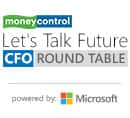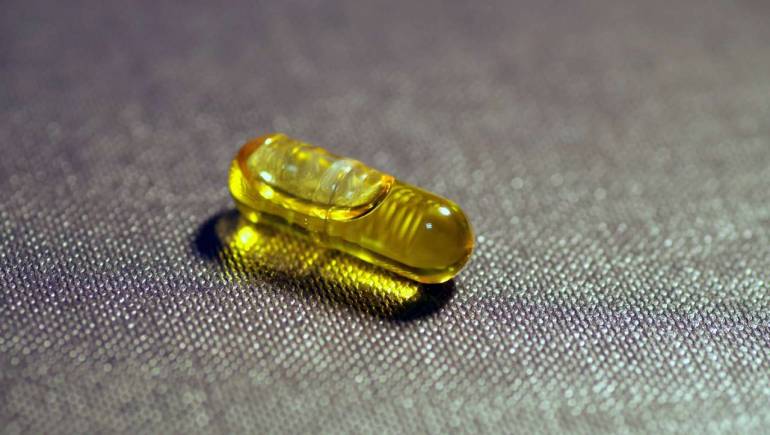The deal with Ranbaxy made Chigurupati overnight billionaire. Flush with cash he went on to acquire and set up at least a dozen companies.
Viswanath Pilla
Moneycontrol News
In the wee hours of February 1, the Nandigama police of Andhra Pradesh found a man in a grey half sleeved shirt lying dead in the rear seat of a white Maruti Suzuki Ciaz in a paddy field abutting the National Highway 65 stretch in Andhra Pradesh.
Initially, passersby assumed it to be another gruesome road accident, as the bustling highway that connects between Hyderabad and Vijayawada frequently witnesses such sights.
Later, the police identified the dead person as 57-year old serial entrepreneur Jayaram Chigurupati and soon found it wasn't a road accident but cold-blooded murder.
While the motive for the murder is still being investigated, local media reports allege the murder could be an outcome of messy financial dealings. Two names that have come up prominently are Chigurupati's niece Shika Chaudhary and her boyfriend Rakesh Reddy. Their role in the murder is also being investigated.
It was a gruesome end to an entrepreneurial career that saw many a high.
Biotech boom
By late 80s, Jayaram Chigurupati called Jay, had completed his PhD in biochemical genetics from the Centre for Cellular and Molecular Biology (CCMB), Hyderabad and was already wondering what he would venture into next.
In those days, when India was still reeling under the license raj, the private sector was nascent and opportunities in the government were far and few. So the popular option for people qualified in cutting edge of science was to migrate to the US.
Chigurupati did just that.
To fulfil his American dream he enrolled into an MBA programme at Cornell University and started working as a Technology Transfer Consultant at the Center of Advanced Technology, Cornell University. He later joined consulting practice at Wilkerson Group in the New York City helping pharmaceutical and healthcare companies of the US.
Chigurupati's specialisation, his network, business acumen and timing put him in an enviable position, as the biotech sector in the US was just taking off with drugs built on recombinant DNA technology increasingly getting approved by US FDA, and were raking in millions of dollars.
Recombinant technology helps produce therapeutic proteins that are almost impossible to replicate synthetically. In recombinant technology microorganisms such as bacteria are genetically modified to express these proteins. An example of such protein is insulin, naturally produced by the pancreas and helps in converting sugar into energy. For people suffering from diabetes, the pancreas gradually loses the ability to produce insulin and such people can be treated by injecting insulin.
In the early days, insulin used to be derived from the pancreas' of cows and pigs, but it wasn't ideal in terms of purity, tolerance and safety. It was also super expensive to produce.
In 1982, when USFDA approved the human insulin produced by California-based drug maker Genentech using recombinant technology, it spawned an entirely new field called biotech. Genentech was later acquired by Swiss drug major Roche.
The recombinant insulin wasn't just safe and tolerable but could be produced at a mass scale, making it affordable for insulin-dependent diabetes patients.
The recombinant technology helped produce not just insulins but antibodies, growth hormones, and clotting factors that were used as drugs and diagnostic kits.
The launch of India's first biosimilar
By early 90s, the biotech boom in the US had caught the attention of entrepreneurs like Anji Reddy of Dr Reddy's. The period also coincided with economic reforms that ended the repressive license-quota raj.
For entrepreneurs like Reddy, it wasn't just the ambition; they now had access to capital to invest in new streams like biotechnology, coupled with a liberal patent regime, that didn't recognise product patents.
But Biotechnology needed more than capital. It needed expertise and access to technology. The generic drug industry was built on India's formidable chemistry skills, but biology is an area that we lagged behind.
Reddy's hunt for such expertise finally ended, with Jayaram Chigurupati.
Chigurupati was tasked to build the biotechnology business for Dr Reddy's as Senior Vice President.
Chigurupati told this reporter sometime back that he was hired by Reddy's son Satish Reddy, and was given a free hand to operate and enjoyed the confidence of Anji Reddy. He was among the top three in that organisation at one point in time.
Within no time Chigurupati led the team that launched India's first biosimilar filgrastim (Granulocyte colony-stimulating factor (G-CSF)) in 2001.
Chigurupati recollected with amusement how the launch of biosimilar filgrastim sparked litigation, as Nicholas Piramal (now sold to Abbott), which was distributing the drug under a licensing pact with Roche sued Dr Reddy's.
Dr Reddy's got away with a minor reprimand by the court that asked the company to rename the drug that was near identical to the branded version.
The team went on to develop a pipeline of biosimilars and cancer drugs.
Dr Reddy's foray into biotechnology was interesting because it was done without technical tie-ups or collaborations with academic institutes or companies outside India.
Chigurupati said it was possible because he identified the people who had those capabilities and backed them.
Joining hands with Ranbaxy
By early 2000s, Chigurupati was no longer on good terms with Dr Reddy's. He declined to reveal what led to his separation from Dr Reddy's but people who tracked those developments say Chigurupati was ambitious and had been plotting to launch a separate company, making the same set of products that he developed at Dr Reddy's. There were also talks about patent disputes between Dr Reddy's and Chigurupati.
By 2003, Chigurupati was on his own. He took control of Zenotech Labs. There he was again building a portfolio of biosimilars and cancer drugs, that he honed at Dr Reddy's.
Malvinder Singh of Ranbaxy Laboratories, India's largest drugmaker then was looking to enter biosimilars (It was then called bio-generics). He found a willing partner in Chigurupati and first struck a partnership with him by taking a 10 percent stake in Zenotech. Within a year, he raised the stake to 45 percent by paying Rs 234 crore in 2007.
Singh didn't stop there. He signed a definitive agreement, under which Ranbaxy would raise its stake further by buying shares of promoters at Rs 160 per share through a preferential allotment by Zenotech. Ranbaxy acquired a further 2.20 percent in January 2008 through an open offer at Rs. 160 per share.
The deal stipulated that Zenotech develop and make regulatory filings for 11 oncology products while Ranbaxy would be responsible for marketing generic versions of the drugs in the US and Canada.
But Singh brothers soon sold Ranbaxy to Japanese drug maker Daiichi Sankyo, and Daiichi reduced the offer to Rs. 113.62 per share. Chigurupati cried foul and started challenging the open offer in various courts. Daiichi was acquired by Sun Pharma.
Meanwhile, the biosimilar business of Ranbaxy never really took off and Zenotech simply crumbled. Chigurupati was forcefully evicted from Zenotech later by Daiichi.
"It was a disastrous acquisition for Ranbaxy," said an executive who also runs a vaccine company in the vicinity of Zenotech plant at Genome Valley in Hyderabad.
Losing focus and life
The deal with Ranbaxy made Chigurupati an overnight billionaire. Flush with cash he went on to acquire and set up at least a dozen companies.
The list included a local area bank, an asset management company, a contact lenses firm, a seed company, a sugar mill, 24x7 Telugu news channel, film production, real estate and a blood protein company.
He lived in a plush locality (even by American standards) of Jupiter, Florida, and travelled frequently to India to manage companies here.
Beneath all that glitter, things were falling apart.
People close to him said he lost focus, and his bets on most businesses went horribly wrong.
He defaulted on salaries to hundreds of employees. People working at his contact lenses' company and news channel were on the roads, protesting before his office for payment of dues.
At least two employees in the news channel were said to have committed suicide due to financial difficulties after they lost jobs.
"He relied on shady people to run the affairs for him, his eccentric ways and his unsavoury personal relationships have all undone him," said a person who knew Chigurupati for years.
He was essentially taking out money from one company, to pay salaries in the other. He was also borrowing money from outside, the person above said.
"His wife, aware of mismanagement, took charge of assets, bank accounts and even power to write cheques. He was in a cash crunch situation. His murder may have been linked to non-repayment of Rs 4.5 crore loan he took from this person called Rakesh Reddy," the person above added.
In all his businesses, Hemarus Therapeutics, that makes blood proteins, such as Hemophilia Factor IX for treating Hemophilia B patients, Fibrin sealant used in surgery and Factor VIII for Hemophilia A, is the only one that's doing okay.
But his murder and how his niece was involved as is alleged remain a mystery.



















